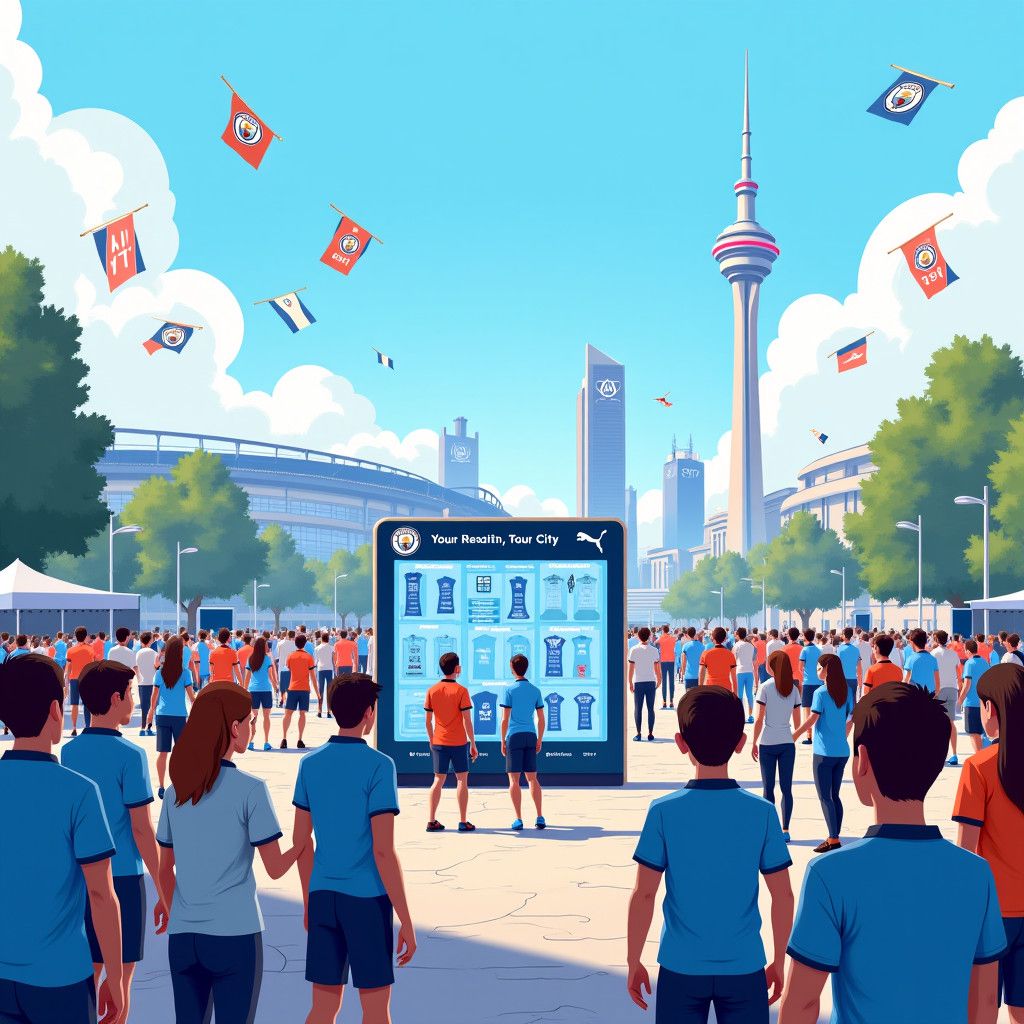In a pioneering collaboration that merges sports, technology, and fan engagement, Manchester City Football Club and Puma are set to revolutionize how jerseys are designed. For the 2026-27 season, they are inviting fans to participate in the creative process through an innovative AI-powered tool. This project not only showcases the potential of artificial intelligence in garment design but also underscores the growing trend of fan involvement in sports branding.
Harnessing the Power of AI
The collaboration between Manchester City and Puma involves an AI-driven platform that allows fans to create their own designs for the team’s next away kit. The tool simplifies the design process by offering templates and various customization options, making it accessible even to those without a background in fashion design. Users can experiment with colors, patterns, and logos, empowering them to have a direct hand in shaping their team’s identity.
This initiative aligns perfectly with current trends where brands increasingly leverage technology to create personalized experiences. By involving fans in the design process, Manchester City not only increases engagement but also fosters a sense of community, allowing supporters to express their loyalty and creativity.
A Shift in Team Culture
This project reflects a shift in how teams approach their branding and engagement strategies. Traditionally, jersey designs have been the product of a closed creative process led by designers and marketing strategists. However, by taking a more inclusive approach, Manchester City demonstrates a commitment to their fanbase that goes beyond mere transactions. This initiative recognizes that fans are not just passive consumers; they are active participants in a living community.
Moreover, this move is a direct response to a generation that values authenticity and personal connection with the brands they support. According to a recent survey by the sports marketing consultancy, Nielsen Sports, 64% of fans express a desire for greater involvement with their teams. Manchester City’s decision to engage fans in this way taps into that sentiment, potentially strengthening their brand loyalty.
Examples of Success
The concept of fan-driven design is not entirely new, but it certainly is gaining traction in the sports industry. A similar initiative was undertaken by the NHL’s Arizona Coyotes, who engaged fans in the design of their third jersey through a social media campaign. The resulting jersey was met with enthusiasm, with fan designs outperforming traditional marketing strategies in terms of engagement and sales.
Puma itself has explored fan participation in fashion through various campaigns, including a recent collaboration with rapper and designer Rihanna. By integrating fan input, Puma can improve its products while also cultivating a brand image that resonates with younger audiences.
The Role of Community
At its core, this initiative is as much about community as it is about fashion. By utilizing an AI platform, Manchester City creates a space where fans can connect over shared interests and experiences. This participation fosters a stronger relationship between the club and its supporters, encouraging more profound emotional investment.
As part of the rollout, the created designs could also serve a charitable purpose. Manchester City has hinted that portions of proceeds from the sale of the fans’ designed jerseys could go to local community projects. This strategy not only enhances the perceived value of the jerseys but also demonstrates the club’s dedication to giving back to the community.
Looking Ahead
The intersection of technology and fan engagement will likely play a significant role in shaping the future of sports branding. As more teams explore innovative ways to involve their fans, we can expect to see a shift toward greater transparency and collaboration, influencing how teams connect with their supporters.
In conclusion, Manchester City’s collaboration with Puma represents a significant step forward in the sports industry. By harnessing AI and actively involving fans in the design process, they not only enhance brand loyalty but also create an engaging and community-oriented approach to sports merchandising. This initiative sets a precedent for how teams can effectively leverage technology to improve fan experience while redefining traditional roles in sports branding.











